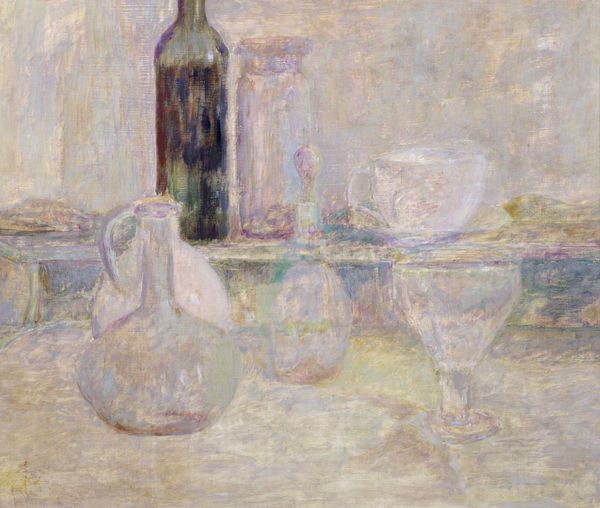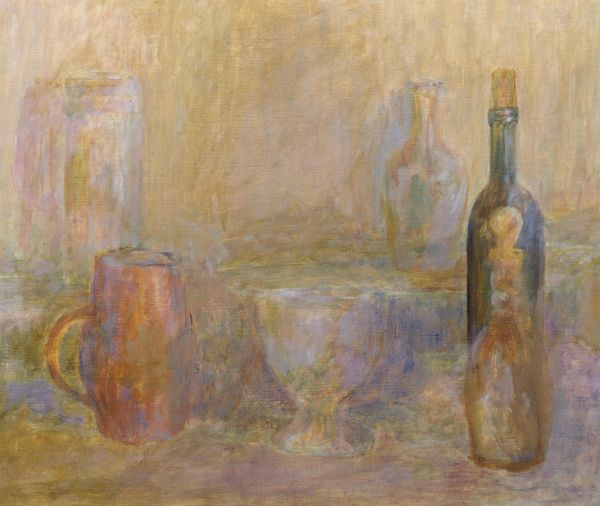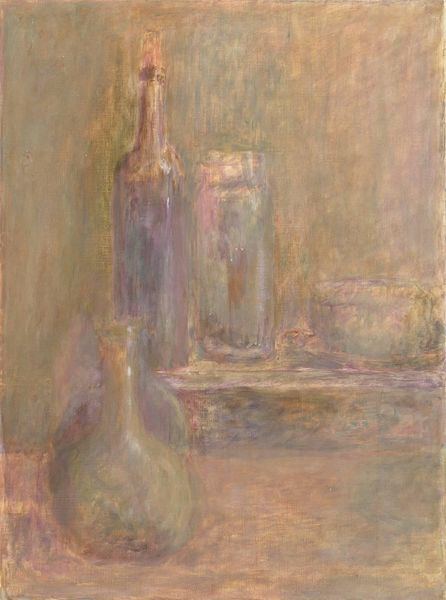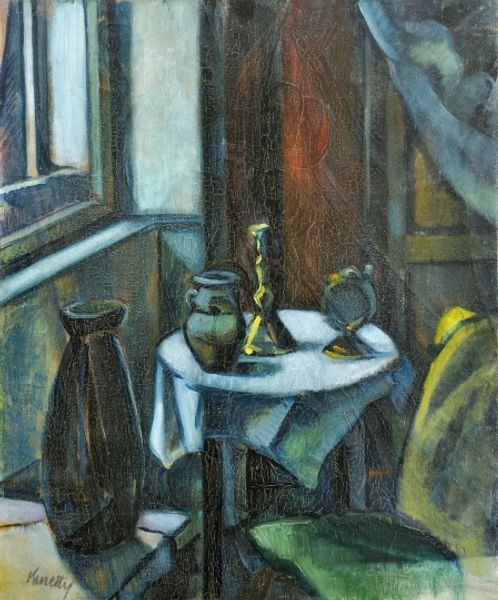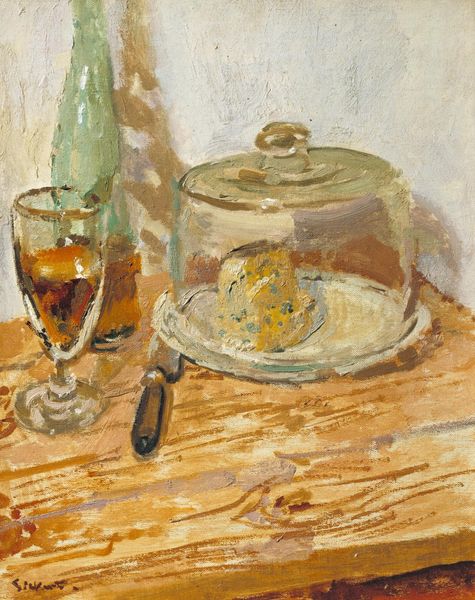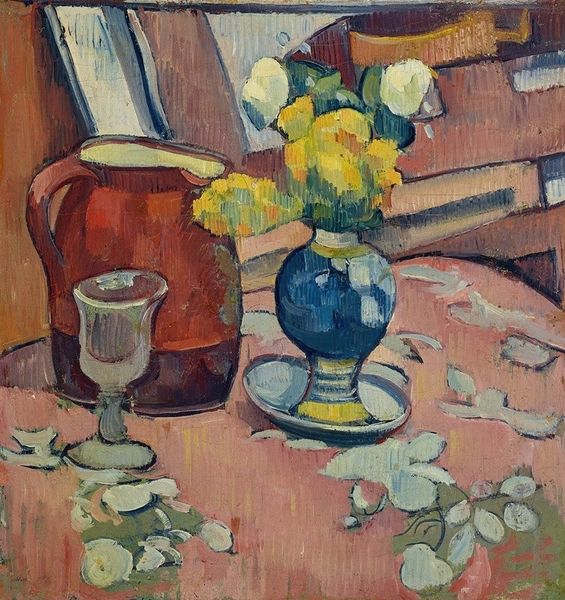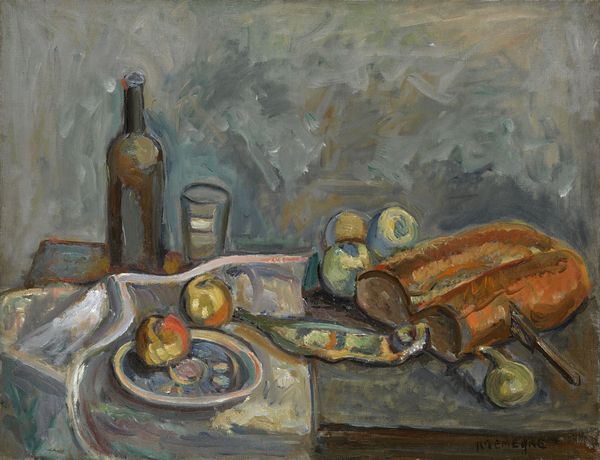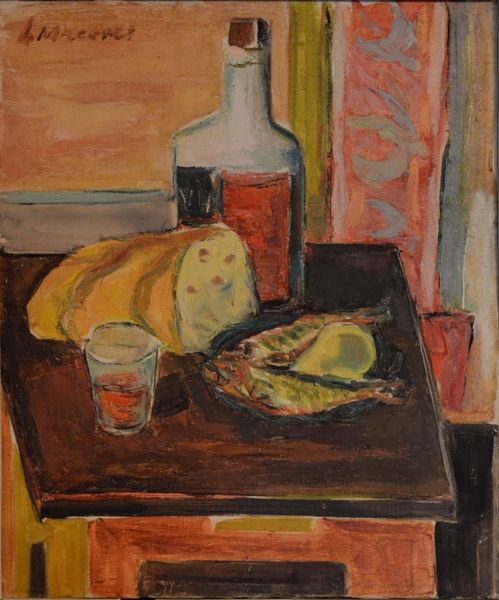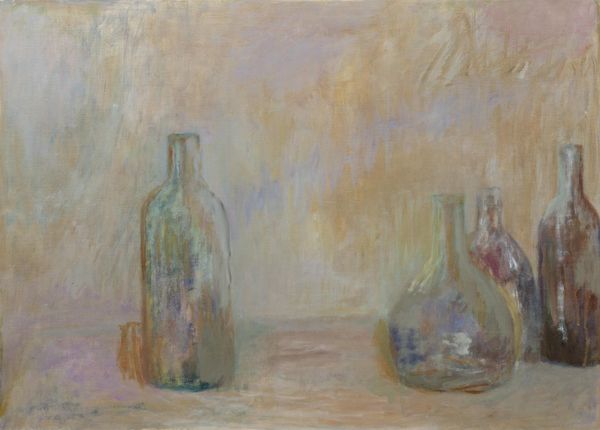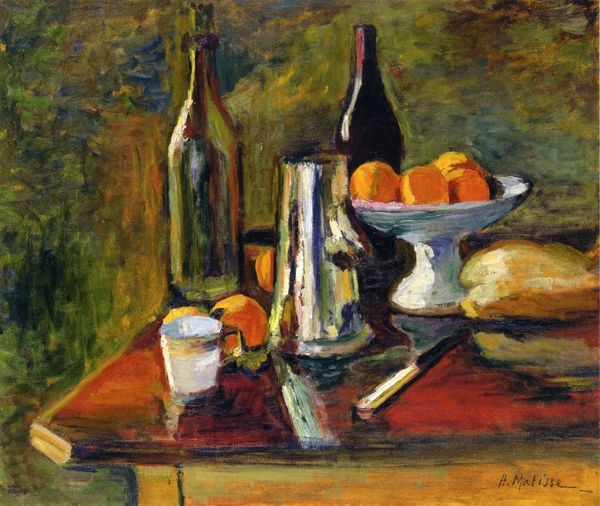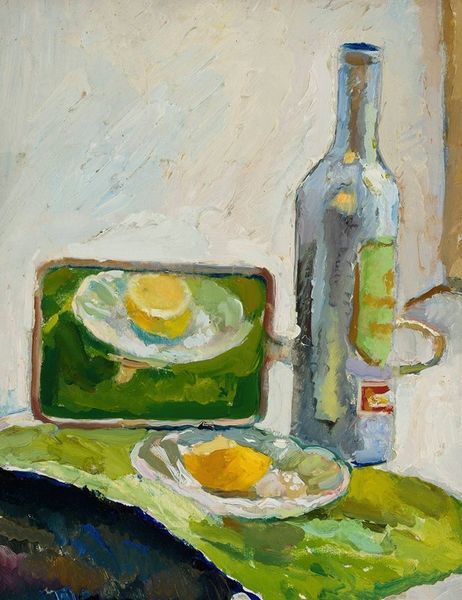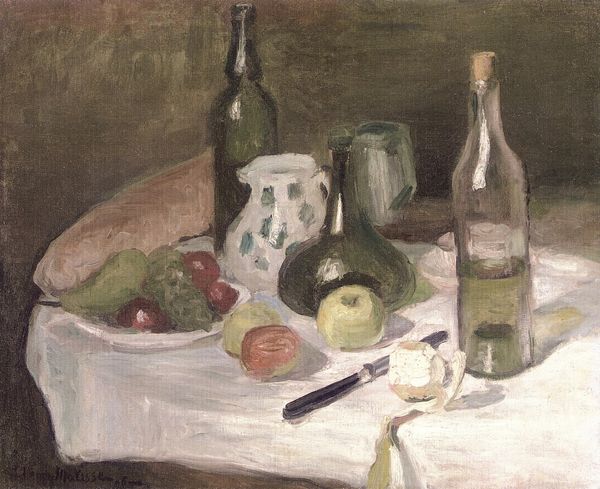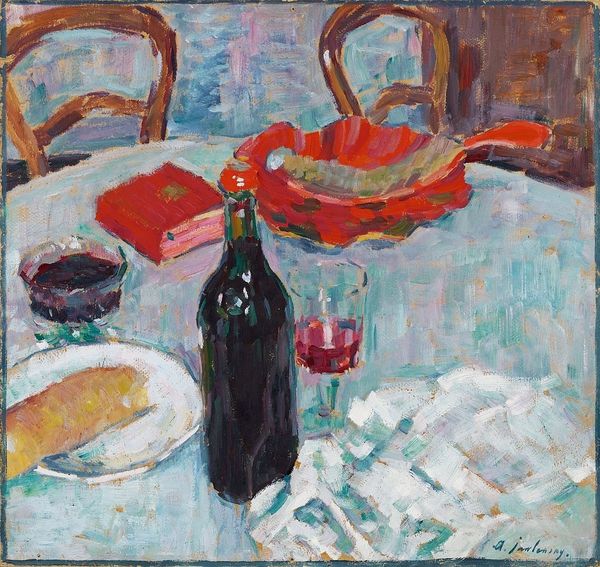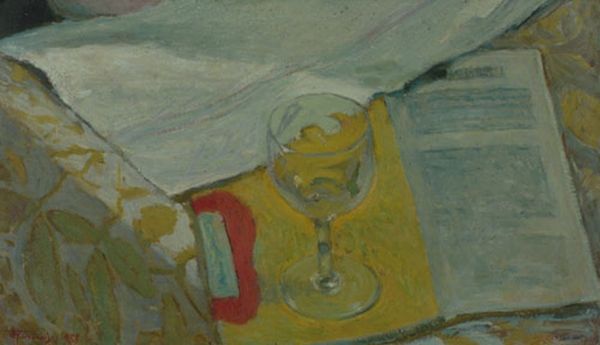
painting, oil-paint
#
painting
#
impressionism
#
oil-paint
#
oil painting
#
post-impressionism
Copyright: Public Domain: Artvee
Vincent van Gogh painted 'Café table with absinth' during his time in Paris, a period marked by his immersion in the city's vibrant café culture. Van Gogh, an outsider in many respects, was known for his empathetic portrayals of marginalized individuals. Here, he turns his gaze towards the culture of absinthe drinking which was popular at the time, while also being associated with the bohemian lifestyle, poverty, and alienation. The painting depicts a glass of absinthe alongside a carafe of water on a café table. The empty chair and the desolate street scene visible through the window evoke feelings of isolation and introspection. Van Gogh’s brother Theo wrote of his brother’s painting ‘a completely empty glass’. The painting, beyond its literal depiction, reflects the artist’s own struggles with mental health and his search for solace in a society that often marginalized those who didn't fit in. 'Café table with absinth' becomes a mirror reflecting both personal turmoil and broader societal issues.
Comments
No comments
Be the first to comment and join the conversation on the ultimate creative platform.
